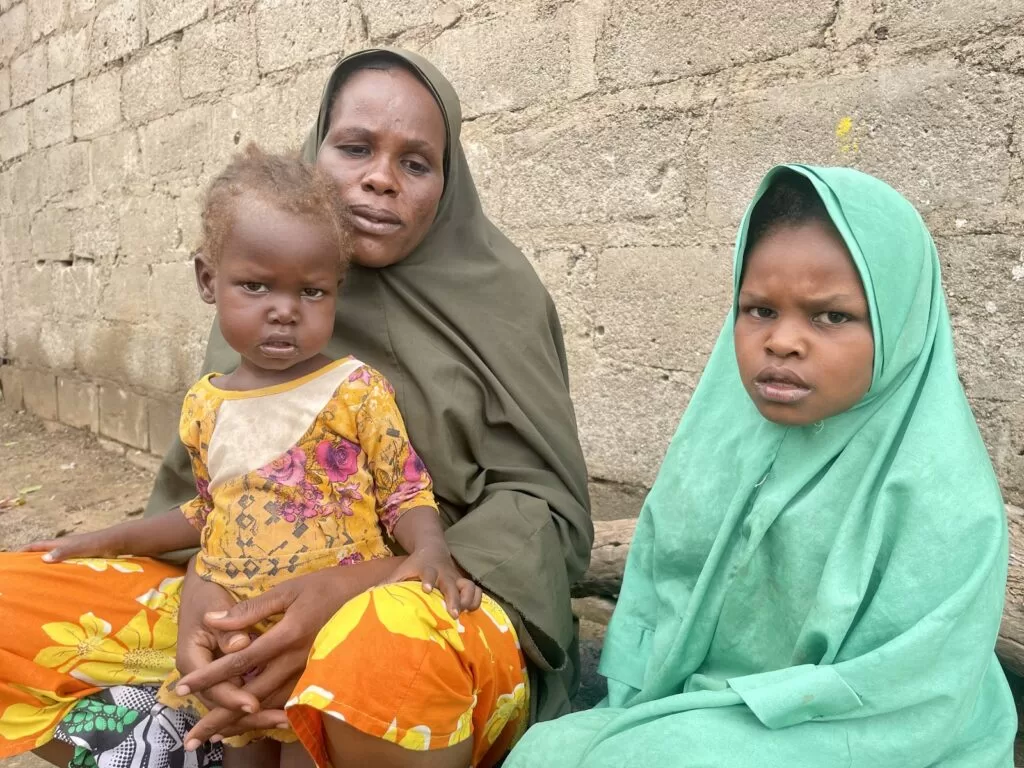It was around 8 a.m. when the first signs of trouble began. Fatime and her family were going about their day, unaware of the chaos about to engulf their lives.
Suddenly, a group of soldiers, together with members of the Civilian Joint Task Force (CJTF), stormed their village, their presence causing immediate panic among the residents. Confusion spread as people engaged in their daily chores, fetching water and tending to animals, were abruptly rounded up and gathered.
“We were all bewildered,” Fatime recounted, her voice trembling as she relived the traumatic moments. “We were summoned and sat there under their custody, not knowing what was happening.”
The soldiers made their intentions clear in a chilling declaration. As if to justify the severity of the situation, an aircraft flew over the area while many military vehicles arrived, amplifying the sense of impending doom.
The scene that followed was one of brutality and despair. The soldiers, displaying an alarming level of aggression, began flogging the men with sticks. Fatime could do little more than watch in horror. “We were all sad about it,” she said, her eyes reflecting the pain of those harrowing hours.
The brutality extended to Fatime’s own home. A soldier entered her room, demanding that she step outside with her baby. The situation quickly escalated as two soldiers threatened to shoot her if she didn’t produce a gun, which she firmly denied having. One soldier asked her to return to her room, while another demanded she strip off her clothes and hand them over.
“They rummaged through our room and did not find anything they were looking for,” Fatime recalled.
Her husband, Audu, was already held at gunpoint in front of their hut. Fatime says he was ordered to remove his clothes and was beaten when he struggled to take off his shirt. He was then ushered to join a group of other adult men who had been rounded up. They were all unclothed and had hands tied tightly.
That was the last time Fatime set eyes on her husband. He was carried away, leaving behind six children, including a newborn baby. Nearly all the other adult men in the community — numbering 42 people — were arrested, too. This was nearly a third of the village’s entire population of about 150 people.
When this tragedy befell Gallari that Friday morning in 2014, it was around the same time Boko Haram terrorists abducted about 300 girls from a government school in Chibok, southern Borno state. The news of the kidnapped schoolgirls made the headlines of numerous local and international news platforms, stirring concerns and condemnation across the world.
While this went on, large-scale human rights abuses by Nigeria’s state forces went under the radar, including the incident at Gallari. Ten years later, victims of the mass arrest shared their chilling experiences with HumAngle. They call the story The Forgotten Men of Gallari.
At the time of filing this report, the Nigerian Army was yet to respond to inquiries regarding the mass arrest. A letter was sent to the Nigerian Army Headquarters requesting information and clarification on the matter, but no reply has been received. Similar efforts to reach the Army spokesperson via telephone were unsuccessful.
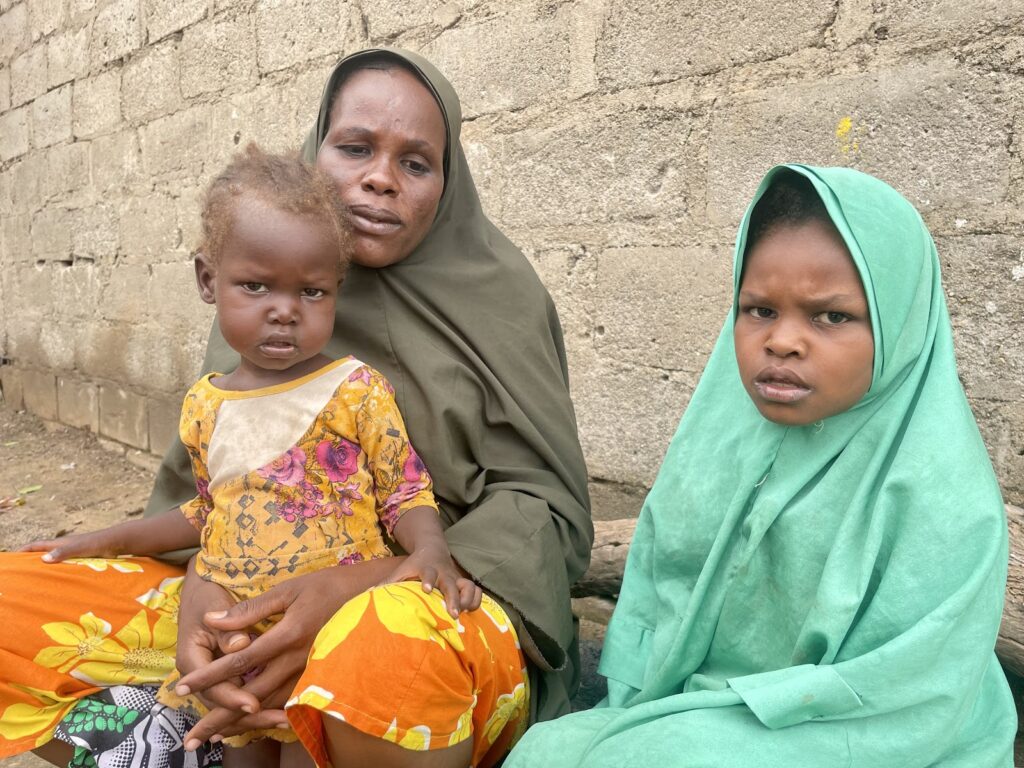
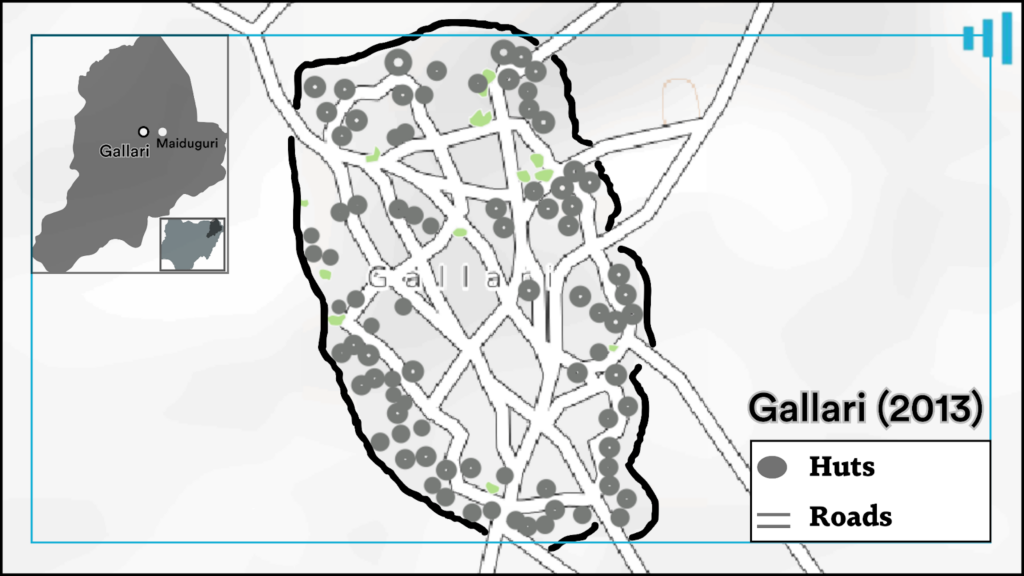
‘They left us with nothing’
Kellu Janga was 58 years old when nine members of her family were taken away.
She was sleeping in her hut when the continued screams of her grandchildren woke her up. While she draped herself in a veil and processed what was going on, soldiers dashed into the hut and directed her and her grandchildren to step out.
A decade later, Kellu still vividly remembers the incident.
“My three sons and my six grandchildren were all taken away, and we don’t know why. We are all innocent, but they carried all our men, leaving us with nothing,” she told HumAngle.
She remembers standing up and asking the soldiers where they were taking their children. One responded that they would bring them back as soon as possible. But Kellu has not set eyes on them since then.
Aisha Muhammed’s household was affected, too. When she heard about the raid, she quickly rushed there to check on her loved ones and found out that her father, the head of the village (bulama), and nine of her brothers were among those arbitrarily arrested. She could not believe her ears, fainted several times and started sobbing. Years later, she still carries the burden from that day.
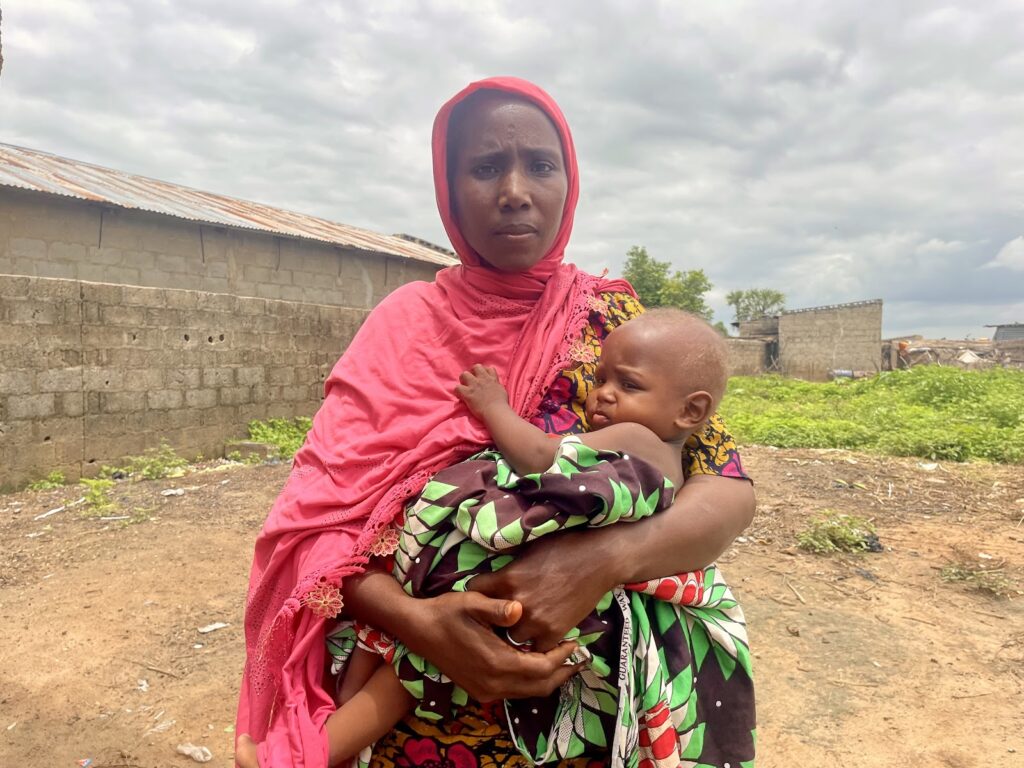
The community was left shattered by this incident, as the affected families had no idea where to search for their loved ones. Ten years on, the families’ anguish remains, and the fate of those arrested remains unknown.
Abubakar, who was only ten years old when the incident happened, was among the first to sense something was wrong. Unaware of the purpose, he saw a line-up of military trucks approaching the village.
“On [that] Thursday evening, while I was returning home after a long day grazing a small herd belonging to my parents, I saw many military vehicles filled with armed soldiers, moving slowly,” he narrated.
The following day, Abubakar went out to graze, but he heard a strange crowd noise before venturing too far, causing him to rush towards the commotion.
“My village was surrounded by soldiers laying on the ground and pointing their guns while others barged into houses, arresting people. They beat people while separating men, women, and children. I watched in horror, frozen in place,” he said.
“My father and three uncles were taken away before my eyes. I remember sobbing while watching them pushed into the vehicle. My mom was crying together with the remaining people, who were only infants, women, and one old man,” Abubakar told HumAngle.
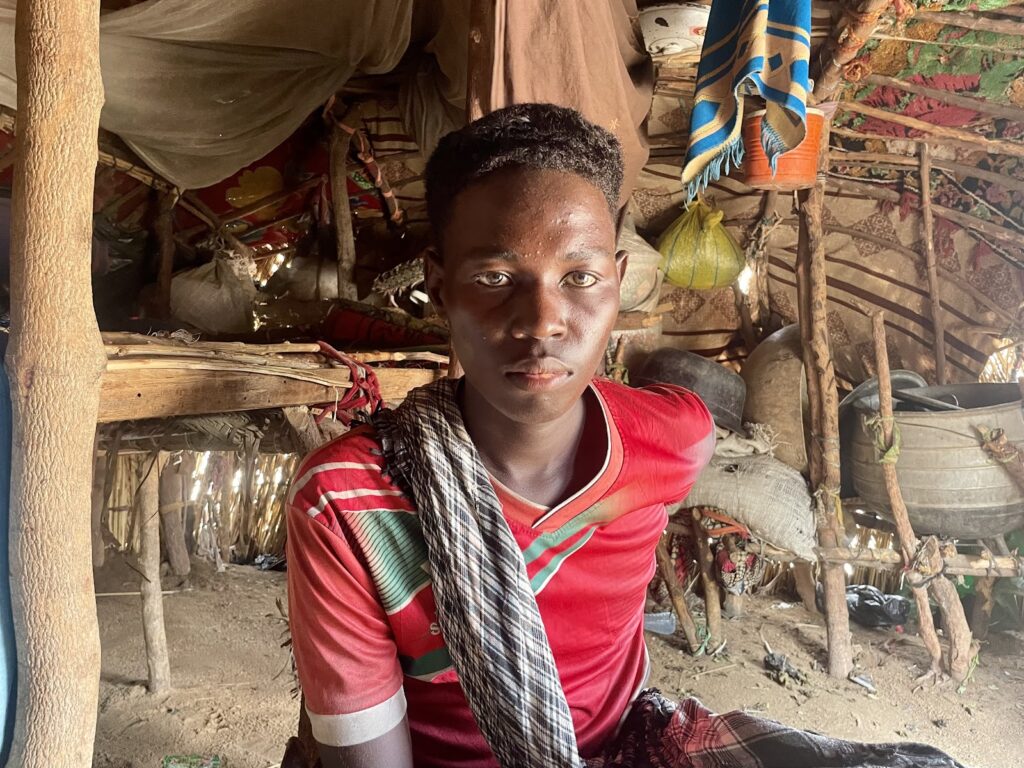
Broken families
Despite his young age, Abubakar had to assume the responsibility of caring for the remaining people in his family — especially his three younger sisters, one younger brother, and their maternal grandmother, Kellu, who lost her sight following the mass arrest.
After fleeing and settling in Mulai, a community on the outskirts of the state capital, Abubakar had to fend for himself because his mother struggled to provide enough for their family. Before she finally lost her sight completely, his grandmother would go out to beg on market days.
Abubakar’s mother, Maryam, held onto the hope that her husband would return home soon, which kept her from remarrying. She worked as a labourer on a farm and received little food support from a humanitarian organisation. However, after her death, the responsibility of catering to the family fell solely on Abubakar.
“I make a sale, mostly less than ₦1,500, and spend the money to feed my siblings and our grandmother. No one has helped us since our mother died,” Abubakar said.
Abubakar was thrust into this life unprepared, navigating stages of hardship as a displaced person haunted by memories of his family. As life grew more challenging, he ventured into farming in volatile areas, cultivating fields and planting sorghum. But each farming season came with its difficulties.
“I don’t apply anything on the farm because we cannot afford them. Things like fertilisers are very expensive, and I plough the field myself,” Abubakar explained.
When HumAngle met Abubakar for an interview, he had just returned from the farm, and his face was etched with disappointment. The reason was that the field he cultivated was submerged in water, which damaged his crops.
“I planted 3.5 mudu (approximately 5.25 kg) of sorghum at ₦6,500. Yet the crops were damaged this morning due to flood and excess rainfall,” he said, despair in his voice.
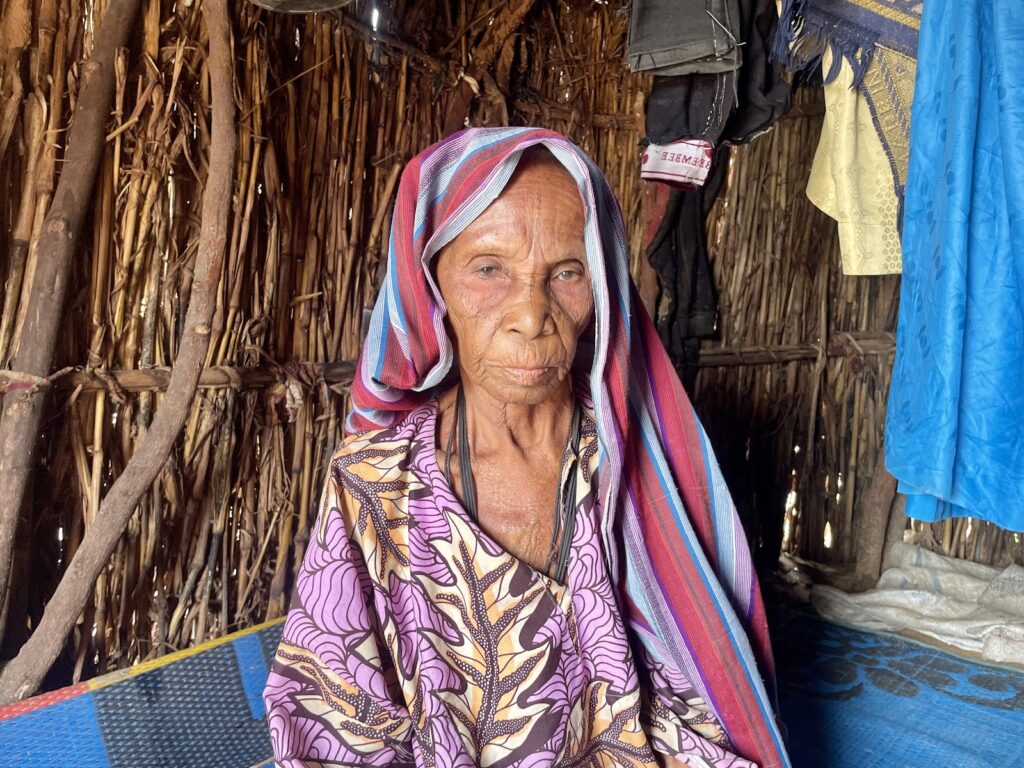
Abubakar never searched for his father and uncles, unsure where to start or who to meet.
“My wish is to raise my siblings and care for my grandmother because these are the only people I have for now. If my father returns, fine and good, but if he doesn’t, I believe in fate. I haven’t lost hope; I believe they are alive, and we hope one day they will return,” he said.
In contrast, his grandmother has sacrificed everything to find her beloved children. She sold their assets, including sheep, cattle, and personal belongings, to fund her desperate search. However, she fell prey to unscrupulous security agents operating in the area.
“All our resources have finished. Several people duped us, saying they would assist us in releasing our children. We sold all our 15 cattle and a few sheep just to pay people who lied to us that they could help us,” Kellu lamented.
“We paid ₦600,000, ₦400,000, ₦240,000 and about ₦700,000 to different people at different times for them to process the release of my children and grandchildren, but they ended up scamming us.”
She has given up on trying after exhausting her resources and still finding no answers, but she is hopeful that help will come someday.
The relentless trauma and grief took a devastating toll on Kellu’s health. Her eyesight was affected because of frequent crying. She now depends on the little support from her grandchild, Abubakar, to meet her basic needs.
The mass arrest has had a devastating effect on the families of Gallari village. As the men were forcibly taken away, their loved ones became displaced and scattered across far-flung locations.
Once anchored by their partners, the wives were now left to fend for themselves and their children. Unable to bear the hardship, many have had to remarry, leaving behind the memories of their absent husbands. Some abandoned their children because their new husbands wouldn’t accept the responsibility of caring for them.
The children have also been robbed of their fathers’ guidance and protection and have had their childhoods disrupted. Some now live with relatives, while others have been forced to fend for themselves on the streets.
The once close-knit and thriving community has been fractured, leaving behind a trail of broken families and shattered dreams. As the years pass, the hope of reunification dwindles, and the reality of a lost generation sets in. The women, once full of life and promise, now wear the weight of their loss. The children, too, bear the scars of their displacement, their laughter and smiles replaced by the harsh realities of survival.
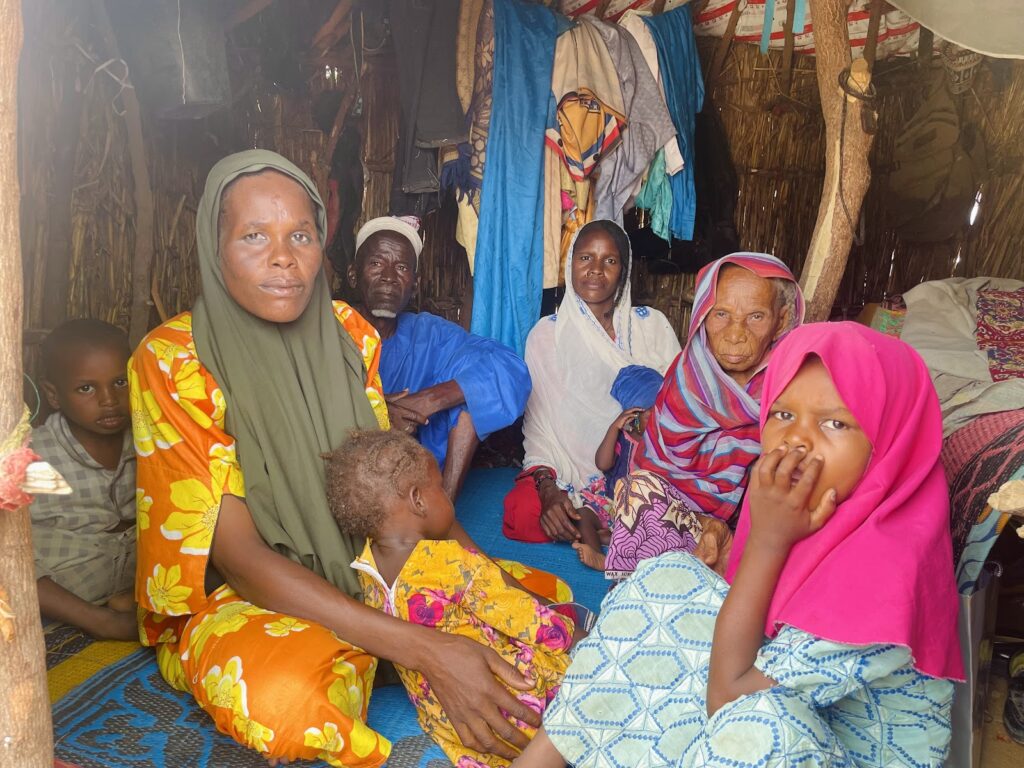
To gather the names of all the 42 men arrested by the Nigerian Army, HumAngle organised a focused group discussion, which included Modu, the deputy village head, and other residents. The atmosphere was filled with tears and anguish as they compiled the list, and each person mentioned the name of someone they knew.
Modu Chelu, the deputy village head of Gallari, sits in the quiet corner of Mulai, where some of his displaced community members have resettled after being uprooted. His face bears the marks of years spent battling the weight of loss and the relentless pursuit of justice.
Modu was the only man from his village spared during the mass arrest. He escaped due to his advanced age and severe illness.
“We lived together for all these years,” Modu explained. “No single person among us cheats people or even picks something that doesn’t belong to them without the owner’s consent. Farming is our only means of survival.”
But the peace of Gallari was shattered when soldiers and the Civilian Joint Task Force (CJTF) descended on the village. “They [the soldiers] were shouting ‘Kufita’ [‘to beckon’ in Hausa], but I didn’t even know what it meant,” he recalled.
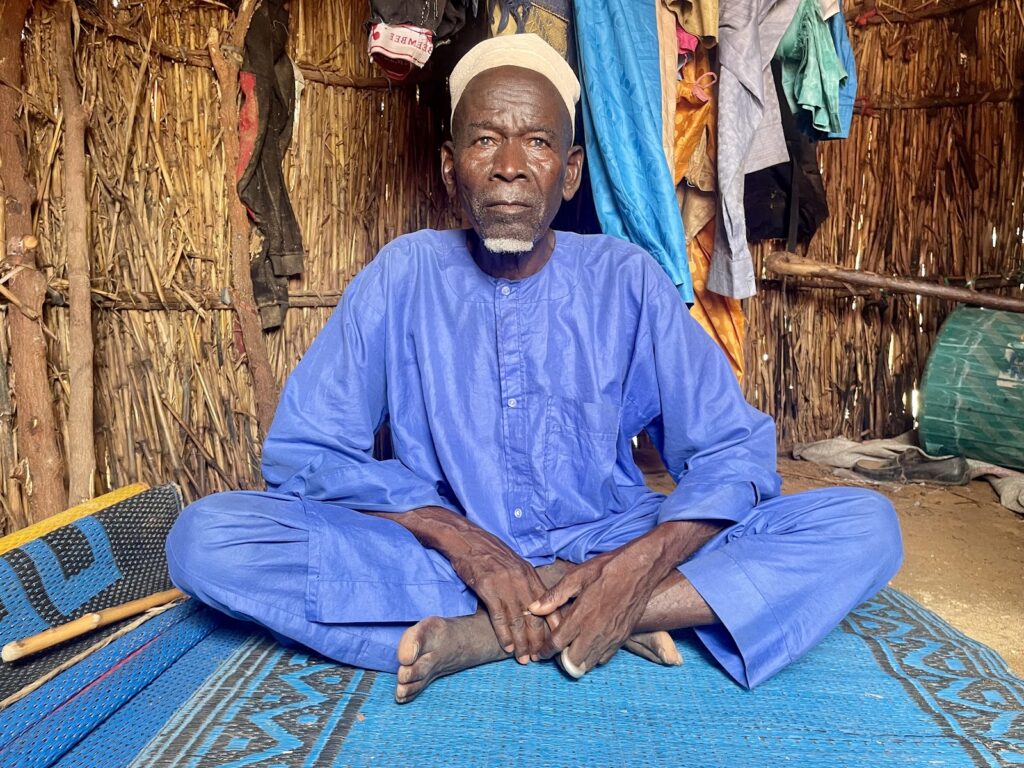
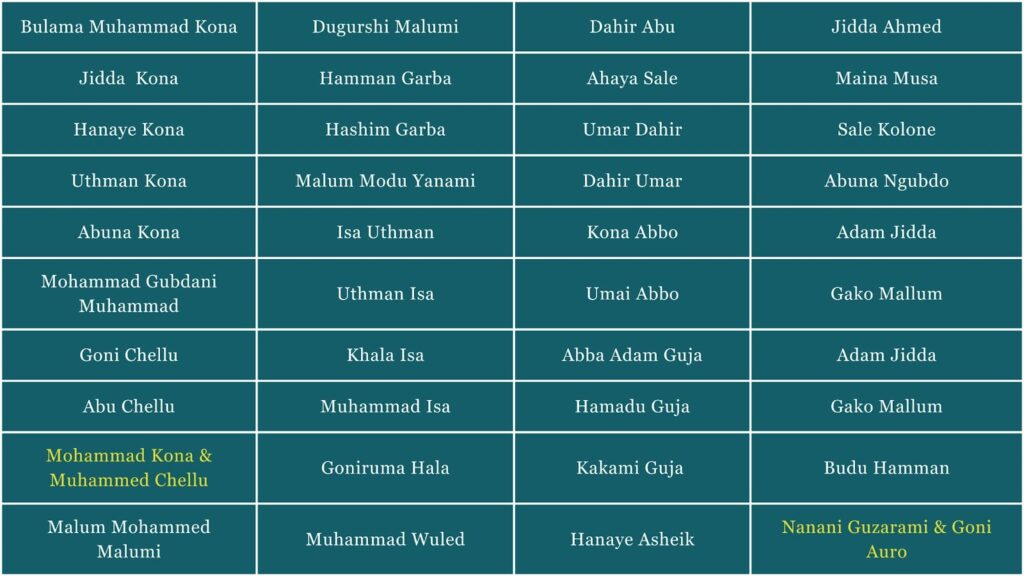

According to Modu, before the men were taken away, the soldiers transported the captured villagers to a nearby area called Kaye, where they were detained. Tensions ran high as soldiers debated their next move. “One of them said they should just leave us and go. Another person said they were asked to bring them here and were not given orders to do anything else. Then, the commander screened us and exempted me. They took the 42 people away in their vehicles.”
The heartache of the situation is compounded by the fact that most of the 42 people taken were close relatives and friends of Modu.
“Only two are not my relatives. The remaining 40 include my children, distant relatives, my brother’s children, and the children of close friends. I am the only one left in the family,” Modu said.
After the soldiers left, the villagers prepared to flee. Modu, on the other hand, immediately sought help from the ward head, Bukar Kolo, and other influential political figures. Despite their best efforts, the trail went cold. “We waited, and up to today, we haven’t seen any of them; there’s not any tangible news,” he said.
“We lost almost all our wealth because of this issue,” he further observed. Scammers exploited their desperation, promising information in exchange for money, but they never delivered. “All our wealth got finished this way. We have really suffered severely.”
Despite the hardships, Modu clings to hope, bolstered by whispers from distant towns that the 42 are alive but held in a faraway place.
“I need my people back. I just want them back,” he pleaded.
